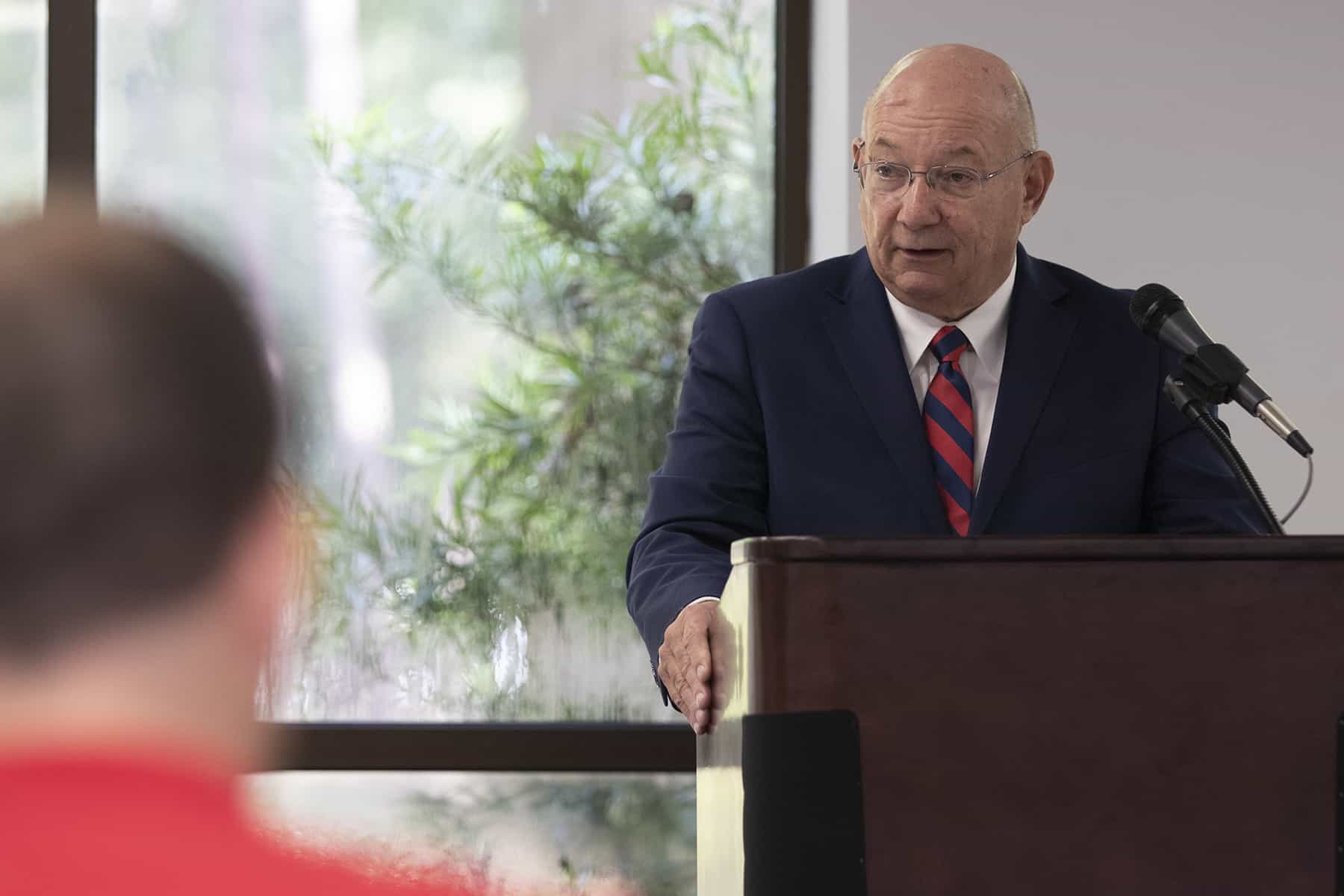September 27, 2020

FMU’s Dr. Carter joins presidents in call not to loosen COVID-19 restrictions
Francis Marion University President Dr. Fred Carter joined presidents for 12 public universities in South Carolina calling for state and local governmental leaders to continue regulations and restrictions related to controlling COVID-19 because “they have worked.” Read their essay, which appeared in several publications across the state this weekend.
The original commentary was delivered through The Post & Courier of Charleston and can be read here — the text can also be found below.
Commentary: 12 SC college presidents: Don’t end COVID measures too soon
BY FRED CARTER, BOB CASLEN, JAMES E. CLARK, JIM CLEMENTS, DAVID J. COLE, J. DERHAM COLE JR., DAVID A. DECENZO, ANDREW T. HSU, GEORGE W. HYND, SANDRA J. JORDAN, RICHARD E. COSENTINO AND AL M. PANU.
College and universities, which are usually the settings for large, exuberant crowds and many face-to-face gatherings, are having to do the best they can while also following best practices of wearing face coverings and social distancing in order to slow and stop the spread of COVID-19, as outlined by the Centers for Disease Control and the South Carolina Department of Health and Environmental Control.
South Carolina’s colleges and universities have each done considerable work to reduce class sizes and manage foot traffic in and around our academic buildings, residence halls, dining facilities, stadiums and arenas.
We have established face covering requirements, hand-washing and sanitizing stations, deep-cleaning protocols and routines for wiping down desks and common spaces. We have communicated regularly with our university communities, including parents and families, to ensure understanding of these “new normal” behaviors.
But this is only part of the solution.
Our students are not on campus 24/7. As they navigate the towns and cities in which they reside, the close partnerships that universities and colleges have with the governor’s office, mayors’ offices and city and county councils have been critical for maintaining consistent public health protocols off campus.
As presidents representing every corner of this state, we know this is a big lift for everyone in South Carolina. We know that the many different coronavirus-related ordinances and governor’s orders require uncommon sacrifices of convenience and money. However, if these ordinances and orders are lifted prematurely and the virus sees a resurgence in the state, the potential short-term gains of some could mean catastrophic long-term losses to others, both in lives lost and businesses closed.We are grateful to Gov. Henry McMaster and all our elected officials at the state and local levels for adopting ordinances and passing statewide legislation over the summer to keep South Carolina on the right path.
And we call on these elected officials to hold fast to these measures. Efforts to require face coverings, regulate high-risk commercial activity and limit large gatherings where social distancing is not practical are working and are helping reduce the spread and transmission of this virus. Our greatest fear is that if these safeguards are removed too soon, we may end up back where we were in the spring — shutting down our campuses and, by extension, jeopardizing the economic health of our cities and towns. This is something no one wants.
As of this writing, South Carolina is seeing an overall decrease in the number of actual positive cases (seven-day average) and in the percentage of positives in those tested — a trend we all want to see continue.
We’ve come this far; let’s not jeopardize our progress by relaxing protocols too soon. We all look forward to the day when we can hear each other more clearly without the muffled sounds of face coverings and gather in large groups without worrying about how many feet separate us.
Let’s stay patient and look to the day when we can truly enjoy the roar of the crowd — the sound of our collective victory.
Fred Carter is president of Francis Marion University; Bob Caslen is president of the University of South Carolina; James Clark is president of S.C. State University; Jim Clements is president of Clemson University; David Cole is president of the Medical University of South Carolina; Derham Cole is interim chancellor of the University of South Carolina Upstate; David DeCenzo is president of Coastal Carolina University; Richard E. Cosentino is president of Lander University; Andrew Hsu is president of the College of Charleston; George Hynd is interim president of Winthrop University; Sandra J. Jordan is chancellor at University of South Carolina Aiken; and Al M. Panu is chancellor at University of South Carolina Beaufort.